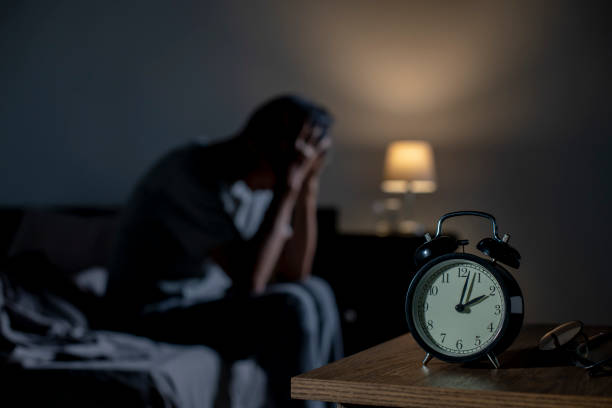It’s always a welcome idea for most people when they nail a job that is run on a shift basis. Some people relish it most especially when they resume for night and had to stay at home during the day in order to rest and attend to a few things that need their day-time attention.
Unfortunately, there are attendant consequences summed up in the term ‘Sleep Disorder,’ that can consequently lead to high blood pressure amongst others.
Should you then resign because of this? ‘No way!’ someone might say, ‘Never!’ says another and what do we say? We support your decision and are here to provide how to manage the situation and get optimum benefits from deserving rest or sleep. If Consistency is employed and advice given here heeded, common, you can bank on a healthier life than it has been. Your doctor’s advice is also very crucial.
Let’s take a look at all that there is to know, shall we?
Shift work is essential and inevitable in many industries such as healthcare, manufacturing, transportation, and security. However, it often disrupts the body’s internal clock, or circadian rhythm, leading to sleep disorders, fatigue, and long-term health risks. That is the word right there ‘Disrupt’ and that’s why we are here.
We will be looking into sleep strategies based on different shift types and how to help shift workers protect their health and performance. Our first question would be, what impact does Shift Work have on Sleep?
Shift workers are prone to Shift Work Sleep Disorder (SWSD), characterized by:
Difficulty falling or even staying asleep especially during the day
Excessive sleepiness during work hours because they already have sleep deficits
Poor quality, fragmented sleep; this is very common
This can lead to:
Reduced alertness and performance at home and on the job.
Mood disturbances (e.g., irritability, depression)
Long-term risks: heart disease, obesity, diabetes and weakened immunity.
Our second concern which happens to be our main, would be to consider helpful strategies:
We would start by giving possible shift schedules and what should work for you. If your shift schedule is not on this list, kindly apply according to your discretion. Let’s go!
1. Night Shift (e.g., 11 PM – 7 AM)
Challenges:
Sleeping during daylight
Circadian rhythm mismatch
Staying alert overnight
Strategies:
Main Sleep: 8 AM – 3 PM in a dark, cool, quiet room. Put off the light; drop one of the curtains if necessary; just try to create a night situation.
Pre-shift Nap: 30–90 minutes around 6–8 PM
Alternatively: 9 AM–1 PM + 6–8 PM nap
Also, use dark sunglasses when heading home to avoid morning light. So, it means you should get one if you do not have.
Avoid drinks that have caffeine after 3 AM. Some people take this in order to stay awake during night shift.
2. Evening Shift (e.g., 3 PM – 11 PM)
Challenges:
Late-night alertness
Difficulty winding down
Reduced family time
Strategies:
Main Sleep: 12 AM – 8 AM
Pre-shift Nap: 1–2 PM
Limit caffeine to early in the shift
Try to take a warm shower, no screens; dim lights would also be helpful.
3. Early Morning Shift (e.g., 5 AM – 1 PM)
This is especially easy for those whose houses are quite close to the office or who live in the staff quarters. In any case, let’s see how best to work things out.
Challenges:
Early wake-up disrupts full sleep cycle
Sleepiness mid-shift
Strategies:
Main Sleep: 8 PM – 3 AM
Afternoon Nap: 2–3 PMS
Use sunrise alarm clocks to wake up gently.
Maximize natural light exposure during and after the shift.
Now, the above works best for those whose shifts have permanent schedule as discussed or who might maintain this for about a month or for some weeks before changes. However, we have workers whose shifts keep rotating like the barber’s chair. That is quite disruptive but this is how we’ve got you covered.
4. Rotating Shifts – Shifts that change for workers everyday or every week.
Challenges:
Inconsistent sleep schedule
Harder to adapt biologically
Strategies:
Gradual transition: Adjust sleep/wake times by 1–2 hours before a shift change.
Anchor sleep: Maintain a consistent 4-hour core sleep (e.g., 2–6am or as appreciate.)
Forward rotation (morning → evening → night) is less disruptive than backward, if you know what I mean.
Some schools of thought are of the opinion that: ‘Forget all these grammar, all I do is use sleeping pills and it has been helpful.’
At this point, we need to take a walk through a few things medical practitioners have to say in this regard.
– Sleeping pills can worsen blood pressure control in older adults, potentially leading to the need for higher doses of antihypertensive medications. Users may develop tolerance, requiring higher doses, and experience withdrawal symptoms or rebound insomnia when stopping the pills.
– Moreso, it has side effects include daytime drowsiness, dizziness, confusion, headaches, hallucinations, and abnormal sleep behaviors such as sleepwalking, sleep-eating, or even sleep-driving, which can be dangerous. It may also increase the risks of dementia, depression, respiratory depression during sleep, and accidental falls, especially in the elderly.
Before we draw our curtains on this, here are some notable professionals and what they have to say:
Dr. Lukman Tiamiyu is Consultant Somnologist at Olabisi Onabanjo University Teaching Hospital, Sagamu, Ogun State; he warns that long-term use of sleeping medications can lead to various health issues, including the followings.
Depression
Cognitive impairments (e.g., memory and concentration problems)
Rebound insomnia (worsened sleep issues after stopping the medication)
Daytime drowsiness, increasing the risk of accidents
Potential links to cancer and cardiovascular diseases
He emphasizes that sleeping pills do not address the root causes of sleep problems and can lead to dependence, requiring higher doses over time. Dr. Tiamiyu advises individuals to undergo proper medical evaluations to identify and treat the real cause of sleep deprivation.
Also, Prof. Frank Imarhiagbe is Consultant Neurologist with the University of Benin Teaching Hospital; advises against the use of medications like Valium and Lexotan for sleeplessness. He said, “If you can’t sleep, something must be underlying. Going to take pills to sleep is not the answer to the problem.”
He highlights that causes of insomnia can range from stress and psychiatric conditions to drug abuse and genetic or hereditary factors. He recommends seeking medical consultation to determine the underlying cause rather than resorting to self-medication.
On his part, Dr. Taiwo Adamson – former Provost and Medical Director with the Neuropsychiatric Hospital, Aro in Abeokuta expresses concern over the increasing rate of substance abuse among Nigerian youths. He notes that eight out of ten psychiatric cases in her private hospital are related to drug use. She emphasizes the need for awareness and preventive measures to address this growing issue.
These and other unmentioned experts for lack of space, collectively advise against the unsupervised use of sleeping pills and recommend seeking professional medical advice to address sleep-related issues.
For healthy individuals, sleeping pills are generally unnecessary; sleep difficulties often stem from stress or anxiety, which should be addressed directly.
They believe taking the right steps and seeing medical practitioners will work more effectively than self-medication.





